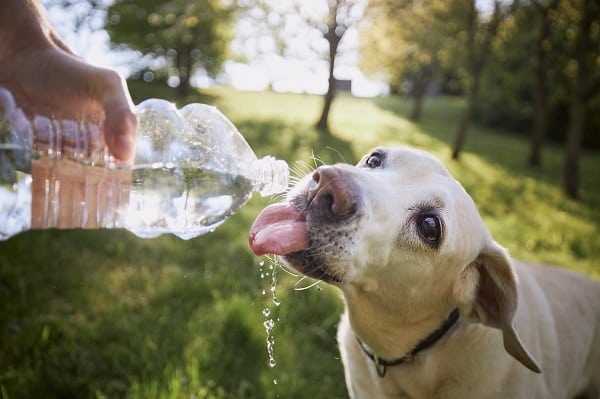Dogs, just like humans, need a balanced and nutritious diet to maintain their health and vitality. Understanding the specific nutritional needs of dogs is crucial for their overall well-being. This blog post delves into the essential elements of canine nutrition, exploring how a well-rounded diet can significantly improve the health and happiness of these beloved pets. From protein requirements to the balance of fats and carbohydrates, this post offers insights into the best practices for feeding dogs, aiming to guide pet owners in making informed decisions for their furry companions.
Understanding Your Dog’s Nutritional Needs

Dogs require a balanced diet that includes proteins, fats, carbohydrates, vitamins, and minerals. These nutrients are vital for their growth, energy, and overall health. The specific nutritional requirements can vary significantly based on factors like age, breed, size, and activity level. For instance, puppies need more calories and specific nutrients for growth, while senior dogs may require a diet lower in calories but rich in certain vitamins and minerals. Recognizing these varying needs is the first step in providing the best nutrition for a dog at any stage of life.
Selecting the right food for a dog also involves understanding the quality and source of ingredients. It’s not just about the quantity of nutrients but also about their quality and digestibility. For example, animal-based proteins are generally more suitable for dogs than plant-based proteins due to their amino acid profile. Additionally, the diet should be adjusted for dogs with specific health issues, like obesity or kidney problems, under the guidance of a veterinarian.
The Role Of Protein In A Dog’s Diet

Protein is a fundamental component of a healthy dog diet, crucial for muscle development, tissue repair, and overall bodily functions. High-quality proteins provide essential amino acids that dogs cannot produce on their own. Sources like chicken, beef, fish, and lamb are commonly used in dog foods for their high protein content and palatability. It’s important to ensure that the main source of protein in a dog’s diet is easily digestible and appropriate for their specific dietary needs.
However, not all proteins are created equal. The bioavailability of proteins in dog food varies, meaning some proteins are easier for dogs to absorb and utilize than others. This is particularly important for dogs with sensitive stomachs or specific dietary requirements. Pet owners should also be mindful of the protein content in the diet, as excessive protein can lead to health issues in some dogs, especially those with pre-existing kidney conditions.
Balancing Fats and Carbohydrates
Fats are a vital source of energy for dogs and play a key role in maintaining healthy skin and coat. They also aid in the absorption of fat-soluble vitamins. Sources of good fats in a dog’s diet include fish oil, flaxseed, and chicken fat. It’s essential to provide a balanced amount of fat, as too much can lead to obesity, while too little can cause deficiencies in essential fatty acids.
Carbohydrates, though not technically essential for dogs, contribute to a balanced diet by providing fiber, energy, and supporting gut health. Good sources of carbohydrates for dogs include whole grains, vegetables, and some fruits. These should be provided in moderation, as excessive carbohydrates can lead to weight gain and other health issues. The key is to find the right balance of fats and carbohydrates that suits the individual dog’s lifestyle and health status.
Vitamins And Minerals: The Essentials

Vitamins and minerals play a crucial role in a dog’s health, supporting everything from bone strength to nerve function. Essential vitamins like A, B, C, D, E, and K, along with minerals such as calcium, phosphorus, and potassium, must be part of a dog’s daily diet. These nutrients support various bodily functions, including vision, blood clotting, and immune response. A deficiency or excess of these nutrients can lead to serious health issues, highlighting the importance of a well-balanced diet.
Dogs typically receive adequate vitamins and minerals from a well-formulated commercial diet. However, in cases where dogs are fed a homemade diet, it’s important to consult with a veterinarian or a canine nutritionist to ensure the diet meets all nutritional requirements. Supplements may be necessary in some cases, but they should be used judiciously, as over-supplementation can be just as harmful as deficiency.
Special Dietary Considerations And Allergies

Dietary considerations and food allergies are becoming increasingly recognized in canine health. Some dogs may benefit from specialized diets due to health conditions like diabetes, obesity, or food sensitivities. Grain-free diets, raw diets, and limited ingredient diets are some options that might be considered, each with its own set of benefits and considerations. It’s essential to make such dietary changes under veterinary supervision to ensure the dog’s nutritional needs are met while addressing specific health issues.
Food allergies in dogs can manifest as skin irritations, gastrointestinal upset, or chronic ear infections. Identifying and managing these allergies requires careful observation and often a process of elimination to determine the allergen. Once identified, avoiding the allergenic ingredient and choosing a suitable alternative is key. It’s important to remember that every dog is unique, and what works for one may not work for another.
The Importance Of Hydration

Hydration is as important for dogs as it is for humans. Water facilitates various bodily functions, including digestion, nutrient absorption, and temperature regulation. Ensuring that dogs have constant access to clean, fresh water is fundamental. Dehydration in dogs can lead to serious health issues, so it’s essential to monitor their water intake, especially in hot weather or during increased physical activity.
In addition to providing water, wet food can be a source of hydration. This is especially beneficial for dogs that naturally consume less water or those with certain health conditions. However, it’s crucial to balance the moisture content in food with the dog’s overall water intake to maintain optimal hydration levels.
Homemade vs. Commercial Diets

The debate between homemade and commercial diets for dogs is ongoing. Homemade diets offer the advantage of controlling the ingredients, which can be beneficial for dogs with specific dietary needs or allergies. However, creating a nutritionally balanced homemade diet requires extensive knowledge and often guidance from a professional.
Commercial diets, on the other hand, are formulated to meet all of a dog’s nutritional needs and are convenient to use. High-quality commercial dog foods undergo rigorous testing and adhere to specific nutritional standards. When selecting a commercial diet, it’s important to choose a reputable brand and consider the dog’s age, size, and health status.
The Bottom Line
In conclusion, providing a balanced and nutritious diet is essential for maintaining a healthy and happy dog. This involves understanding their specific dietary needs and ensuring they receive the right balance of proteins, fats, carbohydrates, vitamins, minerals, and water. Whether choosing a commercial diet or preparing homemade meals, it’s important to consult with a veterinarian or a canine nutritionist. By paying attention to these nutrition secrets, dog owners can significantly contribute to their pet’s well-being and longevity.